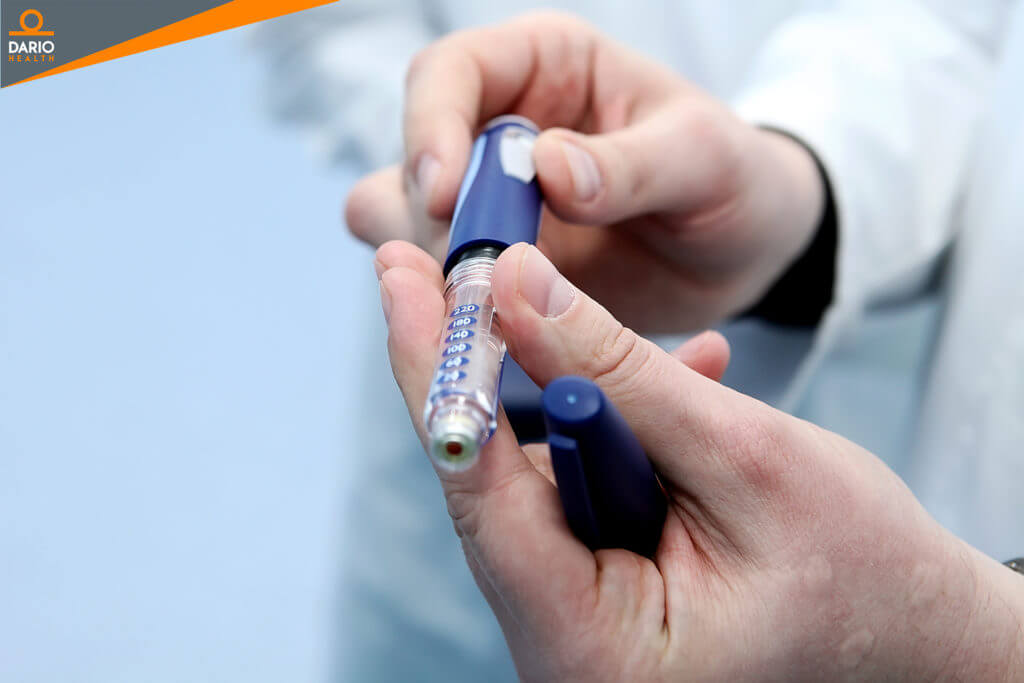A New Type of Rapid-Acting Insulin for Type 1 and Type 2 Diabetes
Those living with diabetes are no longer confined to using traditional insulin injections; there are other options on the market which may be more convenient. 
By Susan B. Sloane, BS, RPh, CDE
The options for the treatment of diabetes have certainly changed a lot since I started working with patients. There are insulin pumps, CGM’s (Continuous Glucose Monitors), new oral and injectable agents to control blood sugars, and even a form of inhaled insulin. Although not for everyone, this inhaled insulin, known as Afrezza®, is an option for some patients with diabetes.
Afrezza is a rapid-acting insulin powder. In patients with type 1 diabetes, it must be used along with a long-acting, or basal insulin. It can also be used in appropriate patients with type 2 diabetes. It comes in cartridges with three different dosing options: 4 units, 8 units, and 12 units.
This is a bit of a limitation, as the dose of insulin is “fixed” and cannot be changed or customized except in units that the product is available in. Upon inhalation, Afrezza peaks in about 12-15 minutes, so proper use and eating promptly is essential. The drug appears in the blood in as little as 1-5 minutes.
Afrezza is a device for inhalation and needs to be used properly for maximum effectiveness. There are certain limitations to the use of this product. It shouldn’t be used in patients with chronic lung diseases, such as asthma and COPD. It is also not recommended in patients who smoke, or who have recently stopped smoking.
There are potential side effects of all prescription products. Afrezza can cause a decline in lung function in some patients; your health care provider will monitor your lung function periodically while you are on this form of insulin. A breathing test (called spirometry) is done six months after starting the product, and yearly thereafter. Spirometry will be done before you start Afrezza as well; the lungs need to be functioning well to use the product because the drug (insulin) is absorbed through the lungs.
Afrezza is indicated for “adult” patients with diabetes (over 18), as the device requires proper manipulation of the inhaler, and young children may not be able to understand and use it correctly. It can be used in the senior population, but again make sure that the individual for whom it is intended uses the device properly.
Afrezza has been a great addition to the “toolbox” for those individuals who may want other options for their insulin delivery; or who may be needle phobic. It is not for everyone but certainly fits into treatment regimes where appropriate. Your own healthcare team can validate if it is the right product for you. Afrezza should not be used during pregnancy as it has not been studied in pregnant women at this time. It is excreted to some degree in breast milk.
The inhaler is individually packaged and fully assembled. It can be used for up to 15 days from the date of the first use, then it must be discarded. When not in use, the product should be stored in the refrigerator. If not refrigerated, it must be used within 10 days. Open strips must be used within 3 days. Before use, cartridges should be kept at room temperature for 10 minutes.
Blood sugars should be checked regularly while on Afrezza to ensure safety and effectiveness. Your Dario meter can keep regular records of glucose measurements and your health care provider will then evaluate and make therapy changes when necessary. Don’t forget: it’s crucial to make sure you have the most up to date information so that you can make informed decisions about your healthcare with the assistance of your own medical team!
About Susan Sloane
Susan B. Sloane, BS, RPh, CDE, has been a registered pharmacist for more than 29 years and a Certified Diabetes Educator for most of her career. Her two sons were diagnosed with diabetes, and since then, she has been dedicated to promoting wellness and optimal outcomes as a patient advocate, information expert, educator, and corporate partner.
Susan has published numerous articles on the topic of diabetes for patients and health care professionals. She has committed her career goals to helping patients with diabetes stay well through education.
<b>Medical Disclaimer</b>
The articles provided on this website are for informational purposes only. In addition, it is written for a generic audience and not a specific case; therefore, this information should not be used for diagnostic or medical treatment. This site does not attempt to replace the patient-physician relationship and fully recommends the reader to seek out the best care from his/her physician and/or diabetes educator.







